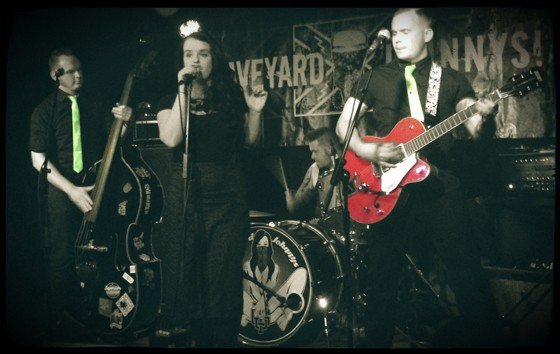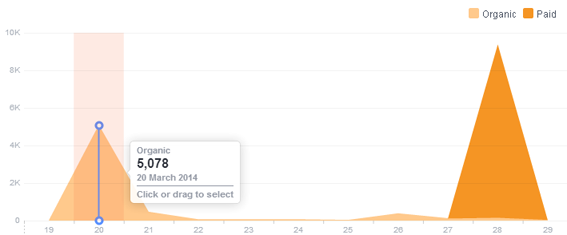At Spindogs we’re big fans of Facebook advertising and we’ve achieved some great results for our clients.
Away from Spindogs I play in a few bands, one being somewhat known in a relatively niche genre. We hadn’t been particularly active over the past few months and had by all accounts fallen of the radar of fans and promoters.

In order to kick start the band’s social media presence, I decided to run a small competition on Facebook, where users were asked to “like” or “share” a particular image with the prize being a band T-shirt (usually sold at £10).
The purpose of the completion was primarily to reach the eyeballs of promoters and to simply get people “talking” about the band again!
Organic reach:
The competition caught attention pretty effortlessly (thanks to quite a good subject photo!). Disappointingly (but true to form), only 15% of the pages’ fans were reached in that number. There were plenty of people liking and sharing the post. The “quality” of those that were reached was incredibly high, including key promoters and those that are quite active in supporting bands in the genre.
The amount of additional page likes generated from the competition was a little disappointing, however increasing the amount of page likes wasn’t the objective of the competition and these could prove to be of a high value at a later time.

Post boosting:
“Why don’t people see our posts?” and “What is Edgerank?” are two commonly asked questions at Spindogs HQ.
Although a lot of people don’t like it, the fact is that even if you audience “likes” your Facebook page and “subscribes” to your updates, in the majority of cases only around 15% to 20% of them will see what you have to say. If you want to reach more of your audience, then Facebook advertising is something you need to consider. As well as promoting your page as a whole, you can look to drive traffic to a particular post, either via the quick “Boost Post” option, or via the more in-depth advertising area.
When boosting posts, you have the option to target your fans and also their friends. In order to keep your campaigns more organised and to gain a better understanding, I’d suggest that you separate these. You also have two advertising options – to be positioned in the right hand column, or to attempt to appear in the main news feed.
For this campaign I chose to position the story in the less obtrusive right hand column of the page for “friends of fans” and to appear in the main news feed of those that had already “liked” the page.
Facebook competition stats:

Key points:
Reaching the friends of those who liked the page was very inexpensive and generated a lot of clicks. Although the number reached was high in comparison to the amount of clicks, the position of the advert would suggest that many would have simply ignored it – so overall I was pleased with the response.
The post wasn’t seen by everybody who liked the page between boosting the post and organic means. This could have been partly due to inactive accounts and time between posts (or advertising) and when users logged in on different time zones (we have a number of fans in South America!).
Tips for running a successful Facebook competition
1: Decide if you need a competition
Before starting a competition, decide if you really need one. We and many of our clients interact with our audiences’ enough not to necessary need give the social media profiles a kick start.
2: Define your goals
You really need to define what you actually want to achieve from running a competition. If you do not do this, then there is no way that you can determine whether or not your competition was a success.
3: Keep it simple
Initially I asked for people to “share” the post in order to enter, however the first five interactions were “likes”, suggesting that my audience wasn’t necessarily reading the full post. It’s worth noting that if you are asking users to “share” to enter, you may not be able to see that they have done so, based on their privacy settings. The less you ask of your audience, the more likely they are to participate.
4: Spread the word & consider using Facebook ads
If your competition is based around “likes” and “shares”, then your audience’s activity will appear in the timelines of their friends (and their friends…and their friends…) so you can reach people. Don’t be afraid to tactfully (not spamming!) mention your competition on relevant pages and groups. I would suggest that you make an advert and specifically target those who are already “connected” to your page. You can also reach the friends of those already connected to your page – I would recommend that you do this via the full advertising area, as you can then also specify interests as an additional layer of targeting, which the paid “boost post” option doesn’t allow.
5: Communicate
If your audience asks a question or leaves a comment, be sure to respond to it quickly. This can only encourage others to do so.